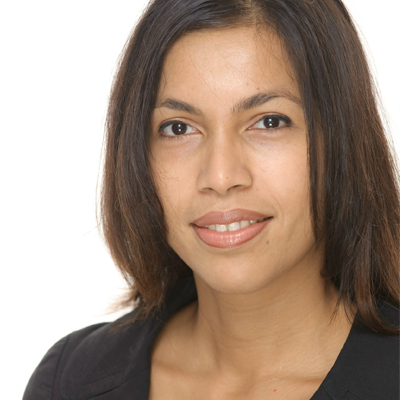Combining computer science and health for a transformative future
One in four people in the world will be affected by mental or neurological disorders at some point in their lives. Ranging from episodes of depression to lifelong diagnoses of bipolar disorder, patients rely upon their providers and coping mechanisms to work through the challenges mental health disorders can bring. One of the greatest challenges for patients is tracking their mental health throughout the day when life gets busy. Dr. Tanzeem Choudhury, of Cornell University, is transforming how patients and healthcare providers measure and treat mental health. By developing interactive technologies that help to bring awareness to the changes that occur in mental health throughout the day for patients, and diagnostic tools as well, her research is likely to have a profound effect on patient outcomes and doctor’s ability to provide effective treatment.
The research that Dr. Choudhury is conducting has the potential to change the way overall health and specifically, mental health, is diagnosed and treated by creating novel wearable and mobile systems that continuously track mental wellbeing and personalized interventions that include patient engagement and clinician-patient alliance. Combining ideas from computer science, psychology, psychiatry, and health, she and her team design novel ways to measure and influence human behavior to improve performance, productivity, and health. Her teams success has been supported by her technology, Mood Rhythm, winning a national award in addition to the numerous awards and opportunities Dr. Choudhury has been presented individually including, being invited to be a TED fellow and being awarded the MIT Technoly Review’s TR35 Award. Due to the applied nature of her work, Dr. Choudhury expects to continue deploying technologies within healthcare systems to wearable devices in addition to commercializing some of the work she and her team are doing in delivering precision measurements and interventions for treating mental disorders.
Current research includes:
-
MoodRhythm: MoodRhythm is a patient-focused personalized intervention system designed for individuals with bipolar disorder that demonstrates how clinically validated approaches can be tailored to individuals and their life routines. Based upon research that supports the importance of routine for patients with bipolar disorder, Dr. Choudhury’s team developed an app that can help to see when disruptions to routine occur.
-
Engaging with Data: Dr. Choudhury is interested in making data accessible to users. Her research aims to answer how patients can engage with data in order to act upon it in ways that will have improved health outcomes.
-
EUREKA: Dr. Choudhury and colleagues developed EUREKA, a smartphone sensing and monitoring system that can detect early warning signs of psychotic relapses and then deliver time-sensitive interventions to help patients with schizophrenia prevent full psychotic relapses and hospitalization.
-
MyBehavior: MyBehavior is a personalized recommendation system for health behavior change. So far, no automated recommendation systems like Pandora, Netflix or a personalized search for the web have been available to translate self-tracked data into actionable suggestions that promote healthier lifestyle. MyBehavior helps to process self-tracked data to provide personalized, actionable, low-effort suggestions that are contextualized to the user’s environment and behavior.
- BodyBeat: BodyBeat is an effort to aid technology in eavesdropping on our bodies -- from munching a toast or swallowing a sip of coffee, to deep breathing after a few laps or run - our body continually makes a wide range of non-speech body sounds, which can be indicative of our dietary behavior, respiratory physiology, and affect. Dr. Choudhury developed a wearable system which can capture and continuously recognize these different types of body sounds with high-fidelity, in addition to being used for behavioral tracking and disease diagnosis.
Bio
Growing up in Bangladesh, Dr. Choudhury was a naturally inquisitive child. However, despite her flourishing professional career in computer science now, the first time she ever touched a computer was as a freshman in college. Her curiosity attracted her to a basic computer programming class where she began with learning to turn a computer on and ended with a passion for creating sophisticated programs that can help impact society.
Now, as an Associate Professor in Information Science at Cornell University, Dr. Choudhury works with graduate students in both the Information Science and Computer Science departments. She directs the People-Aware Computing group, which works on developing machine learning techniques for systems that can use reason to investigate human activities, interactions, and social networks in everyday environments.
Dr. Choudhury received her Ph.D. degree from the Media Laboratory at the Massachusetts Institute of Technology (MIT). As part of her doctoral work, she created the sociometer and conducted the first experiment that uses mobile sensors to model social networks, which led to a new field of research referred to as Reality Mining. She holds a B.S. in electrical engineering from the University of Rochester, and M.S. from the MIT Media Laboratory.
Website: http://pac.cs.cornell.edu/


